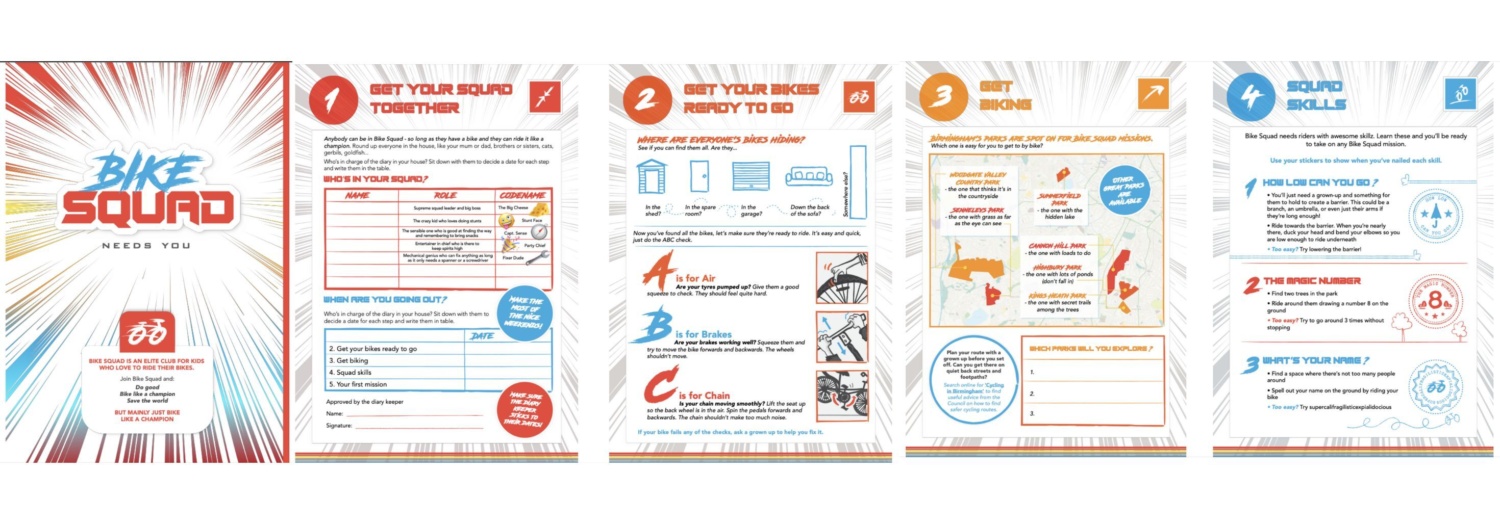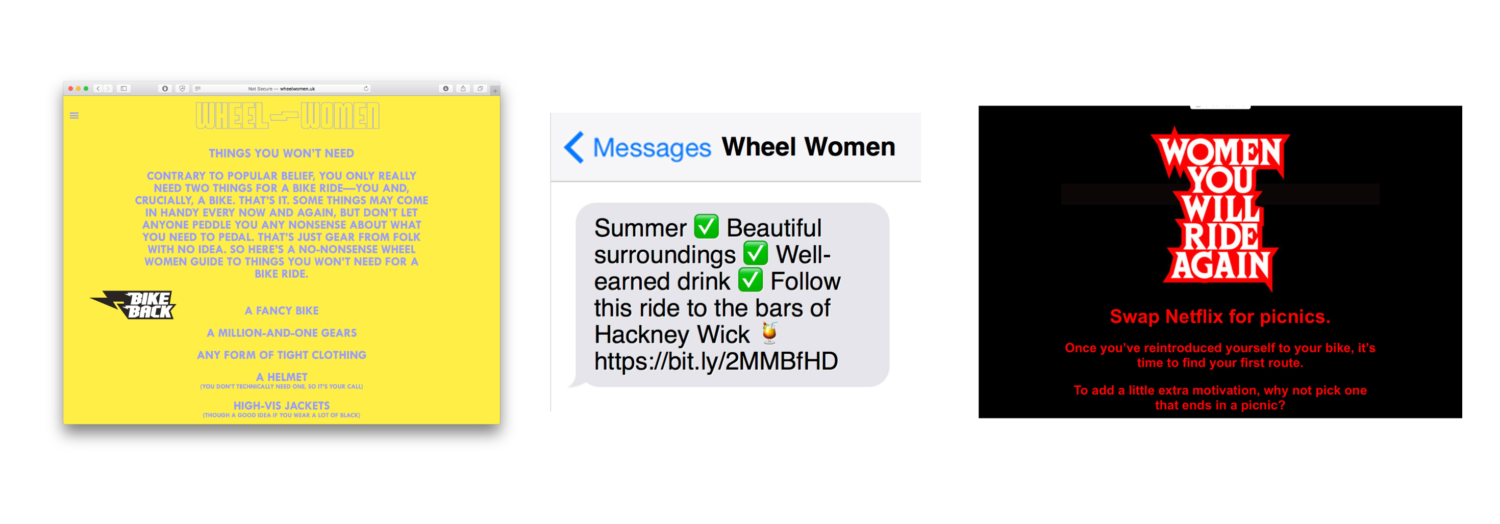Background
Recent decades have seen an increase in cyclists on UK roads and billions of pounds invested in low-cost and sustainable transport including cycle networks. But the growth of cycling has largely stayed within narrow audiences. We worked with British Cycling to design, develop and pilot two interventions aiming to increase cycling among two specific target groups: families with children at home and women aged 25-44. Both pilots had positive results, increasing the number of bike rides taken by infrequent cyclists, along with boosting confidence, cycling skills and future plans to cycle.
Insight
Through newly commissioned ethnographic research with our target groups, we identified a broad range of motivational and ability barriers related to cycling, including:
- Family responsibilities
- Perceived fitness levels
- Identifying as a "cyclist"
- Self-image/body image
- Safety worries
- Bike storage and maintenance
The vast range of complex barriers led us to conclude that ultimately, there is no ‘silver bullet’ solution when it comes to increasing cycling uptake amongst infrequent cyclists. However, it was clear that in our target groups, going cycling was primarily a chance for enjoyment and socialising, so we needed to design interventions that focused on freedom and confidence whilst making cycling feel easy and accessible.
Intervention
Bike Squad
Targeting families with children at home
A vibrant engaging activity pack for children that provided structured goals, practical tips and ‘missions’ to complete by bike in their local area. This was designed to create family moments and experiences that are purely ‘fun’ rather than ‘functional’, whilst growing kid’s confidence and harnessing their enthusiasm to get the whole family going.
Behavioural tools used include: help don’t tell, and commitment

Wheel Women
Targeting women aged 25-44
Wheel Women was a bold and humorous new “movement”, which emphasised the personal benefits of cycling, combatted the perceived tribalism around it and confronted motivational barriers head-on. We developed a website and a programme of texts and emails delivering timely prompts to help women to overcome the barriers and provide them with the confidence to get back on their bikes.
Behavioural tools used include: social norms, help don’t tell, and right place, right time

Implementation
Trialled in Birmingham, Bike Squad was delivered physically to families in the post, addressed to the children to increase excitement further.
Trialled in Walthamstow, London, Wheel Women sent targeted texts and emails matched to local weather conditions to women. The website provided further encouragement alongside practical tips and tailored local routes and places to stop.

Two types of data were collected to build a picture of how well each pilot had worked to change both:
- Actual cycling behaviour – through fitting GPS trackers to participants bikes and comparing pre- and post-intervention data on journeys taken
- Claimed behaviour, attitudes and motivations around cycling – through a survey at the end of the intervention period
Impact
The Bike Squad pack was very well received, with 90% of parents saying the pack contained lots of fun things to do. 83% said they planned to use their bike more in the future, 59% said family relationships had improved, 76% said children’s cycling skills improved, and 72% said children’s confidence improved. While there were some difficulties in using data from the GPS trackers, we were also able to conclude that the intervention had a small positive effect on the number of times families went cycling.
Wheel Women also increased actual cycling behaviour. Spikes in bike rides measured by the trackers aligned with the delivery of the texts and emails, suggesting that timely prompts were effective. It also positively influenced motivations and attitudes: 76% said Wheel Women made cycling seem easy and fun, 62% said they felt a sense of pride or achievement, 65% said they felt more connected to the outdoors, and 73% planned to use their bike more in the future.
Overall, both interventions successfully engaged their target audience, and increased motivations to cycle more in the future. British Cycling are now working on how they can scale up these interventions through their programmes and channels.